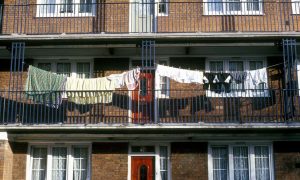The hostile environment: what social landlords need to know
The problems experienced by the Windrush generation highlight the effects of the “hostile environment” created by Theresa May when she was home secretary. Anyone needing rented housing is affected, alongside those going to hospital or applying for a job or bank account. Social housing applicants have long had to comply with eligibility rules but landlords in England now have to check their right to rent. Rough sleepers and those in poor-quality rented accommodation can be affected by Home Office enforcement action. How can social landlords respond? Here are seven tips.
First, it’s vital that housing staff know the rules or can get expert guidance. We at the Chartered Institute of Housing (CIH) have received reports of people being told they are not eligible for social housing because (for example) they are EU nationals or have limited leave to remain. Many people in these groups are eligible and will continue to be after Brexit. You can find all the rules on the Housing Rights website run by the CIH and BME National. Remember that there may be different rules for housing allocations, homelessness and benefits.
Second, you mustn’t discriminate. You can’t ask someone for proof of identity or entitlement to live in the UK solely because of their ethnicity, their name or the language they speak. Your rules must treat everyone equally. The Right to Rent scheme has led to discrimination by landlords, as revealed by the Joint Council for the Welfare of Immigrants and the Residential Landlords Association. As well as not discriminating yourself, you should help those seeking to challenge discrimination if they report it.
Third, be aware of the obstacles people face in proving they are entitled to be in the UK. The Windrush victims were told to get their documentation in order, but this is costly (getting citizenship requires fees of more than £2,000 per person), and for older people – including those who have lived here all their lives – proving entitlement can be difficult. Documentation requirements vary and there are no required documents for housing eligibility, so you have to make reasonable use of what proof people have.
Fourth, we know that the Home Office often gets things wrong: there is no need to contact the department on a routine basis, nor take its advice on housing entitlement, which is not covered in its rules. Many of the Windrush cases were turned away because the Home Office said it had no record of them and left landlords and employers to assume they didn’t have a right to be here. We’ve just updated the Housing Rights website with the latest changes made by the Home Office and the Department for Work and Pensions: longstanding migrants or their children can now get help from a dedicated Home Office unit.
Fifth, it’s the most vulnerable people who are most affected: those who have experienced domestic violence, those trafficked for work or working in the hidden economy, older people, asylum seekers challenging Home Office decisions, and many more. If these people turn to local councils or social landlords for help, will they get it? Again, the Housing Rights website helps identify ways in which vulnerable people can be helped and the exceptions that might apply.
Sixth, are you an adviser to private renters or do you do enforcement work, for example against rogue landlords? There is a risk that enforcement of proper conditions gets entangled with enforcement of immigration rules. Your work should emphasise the former – you’re there to support tenants. If you find intolerable conditions where tenants have to be moved for their own health or safety, are you going to put them on the street (where they will be worse off) or are you going to look for options for their re-accommodation, regardless of their immigration status?
Finally, do you assist rough sleepers and other destitute people, who of course may be in that position because they can’t get work or benefits? Some who are not UK nationals may want to return to their country of origin, but don’t assume this or hand their details to immigration enforcement officers: rounding up rough sleepers from the EU, for example, may be unlawful. As a social landlord, a better approach is to work with charities to provide free accommodation to destitute people who can’t get benefits – the Joseph Rowntree Foundation guide How to improve support and services for destitute migrants shows you how.
Of course, everyone working for social landlords should comply with the law, but to do this you need to be fully aware of people’s housing and benefit entitlements, as well as of the restrictions that limit your work. Bear in mind that most of the hostile environment measures hit those who are poor and vulnerable hardest.
Original post and comments: Guardian Housing Network
